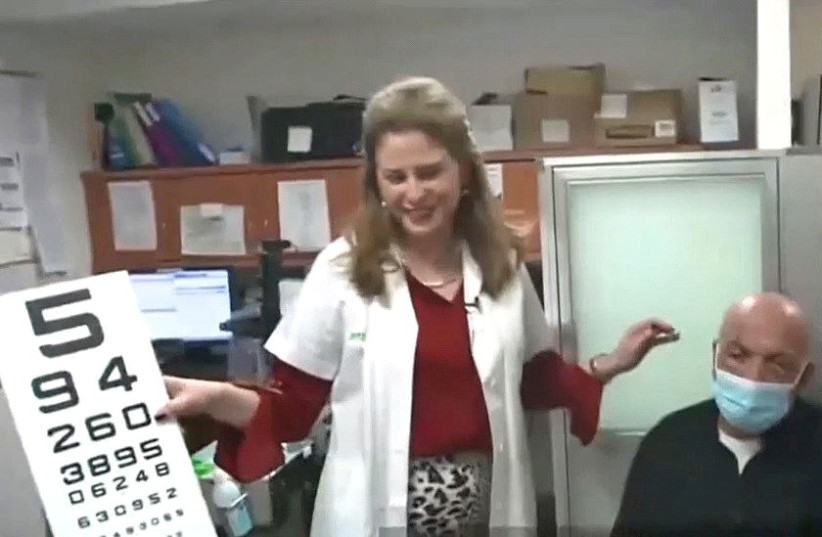Sight returns to the blind with first-ever artificial cornea transplant
The CorNeat KPro implant is designed to replace deformed, scarred, or opacified corneas.
By Zev Stub, Jerusalem Post, January 20, 2021

Prof. Irit Bahar and Dr. Gilad Litvin with first-in-human KPro patient and his daughter (photo credit: Courtesy)
An 78-year old blind man got his sight back with the implant of an artificial cornea, the first such operation in the world.
The
artificial cornea, designed by Ra’anana-based CorNeat Vision, was
implanted in a surgery performed at Rabin Medical Center in Petah Tikva.
Upon removal of bandages, the patient was immediately able to read text
and recognize family members, the company said.
“The
surgical procedure was straightforward, and the result exceeded all of
our expectations,” said Prof. Irit Bahar, director of the hospital’s
ophthalmology department, who conducted the surgery.
“The moment we took off the bandages was an emotional and
significant moment,” she said. “Moments like these are the fulfillment
of our calling as doctors. We are proud of being at the forefront of
this exciting and meaningful project, which will undoubtedly impact the
lives of millions.”
“Unveiling
this first implanted eye and being in that room, in that moment, was
surreal,” added Dr. Gilad Litvin, the co-founder of CorNeat Vision.
“After years of hard work, seeing a colleague implant the CorNeat KPro
with ease and witnessing a fellow human being regain his sight the
following day was electrifying and emotionally moving; there were a lot
of tears in the room.”
The
CorNeat KPro implant is designed to replace deformed, scarred or
opacified corneas and is expected to fully and immediately rehabilitate
the vision of corneally blind patients following a relatively simple
implantation procedure. It is the first artificial cornea that
completely integrates with the eye wall with no reliance on donor
tissue, the company said.
CorNeat KPro Animation, Feb 26, 2020
The surgery is the first of 10 that are approved for trial at Rabin
Medical Center as part of a multinational clinical trial, geared toward
attaining FDA and international approvals. Two additional sites are
planned to open this January in Canada, and six others at different
stages in the approval process in France, the US and the Netherlands.
"Our first trial includes blind patients
who are not suitable candidates for, or have failed one or more,
corneal transplantations,” said Almog Aley-Raz, CorNeat co-founder and
CEO. “Given the exceptional visual performance of our device, the
expected healing time and retention, and the fact that it cannot carry
disease, we plan to initiate a second study later this year with broader
indications to approve our artificial cornea as a first-line
treatment.”
Please recommend this page & follow the Sputniks Orbit


No comments:
Post a Comment